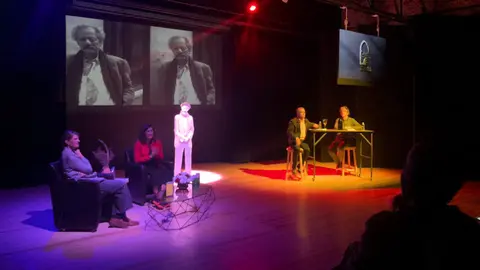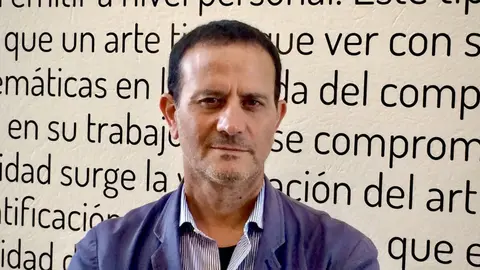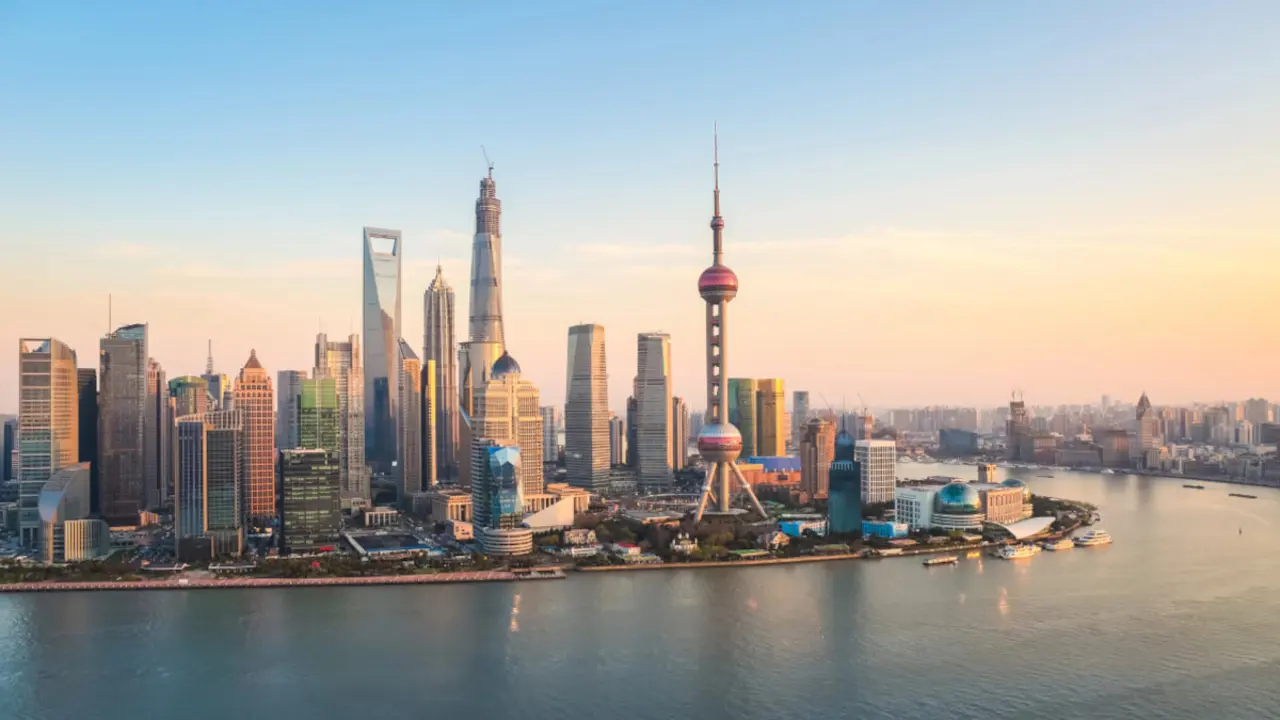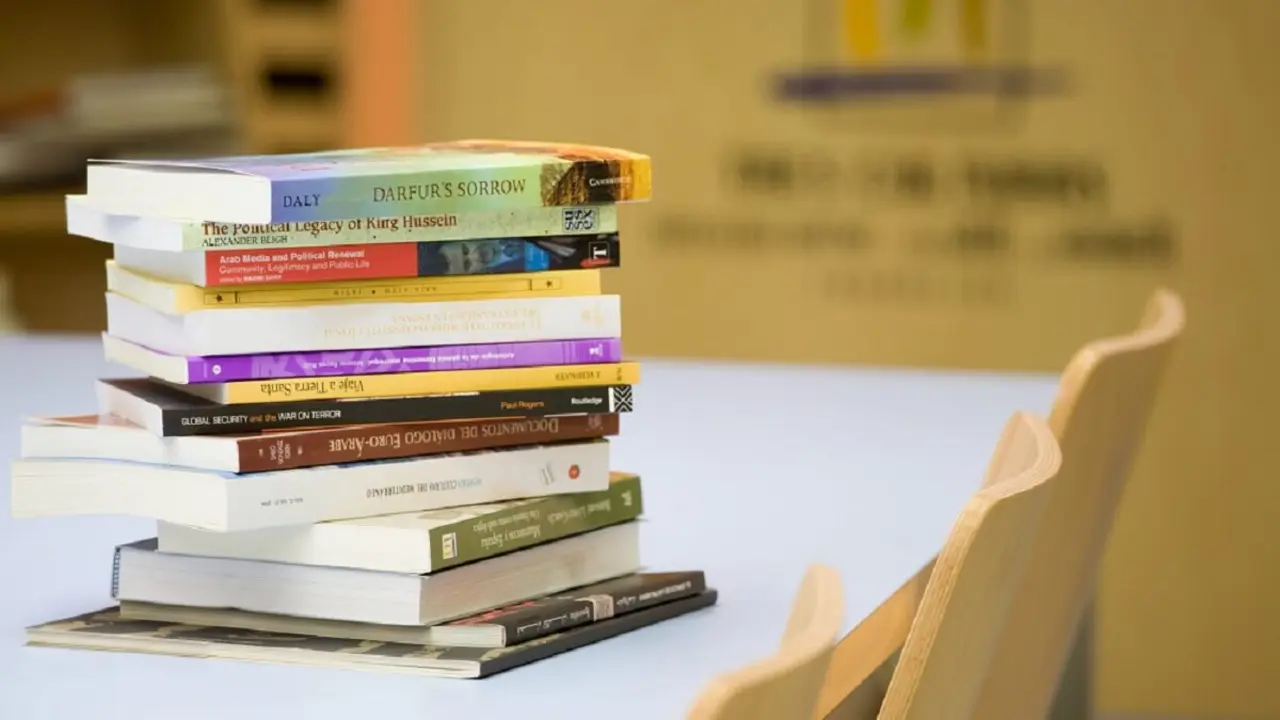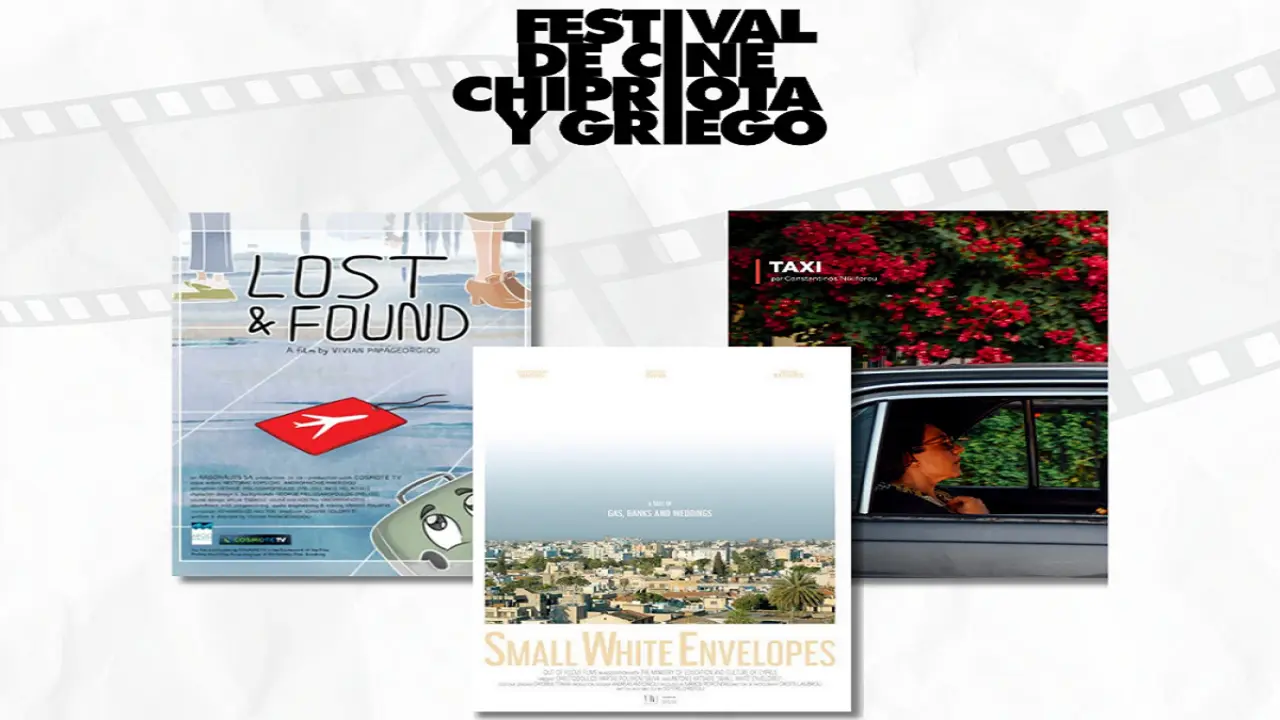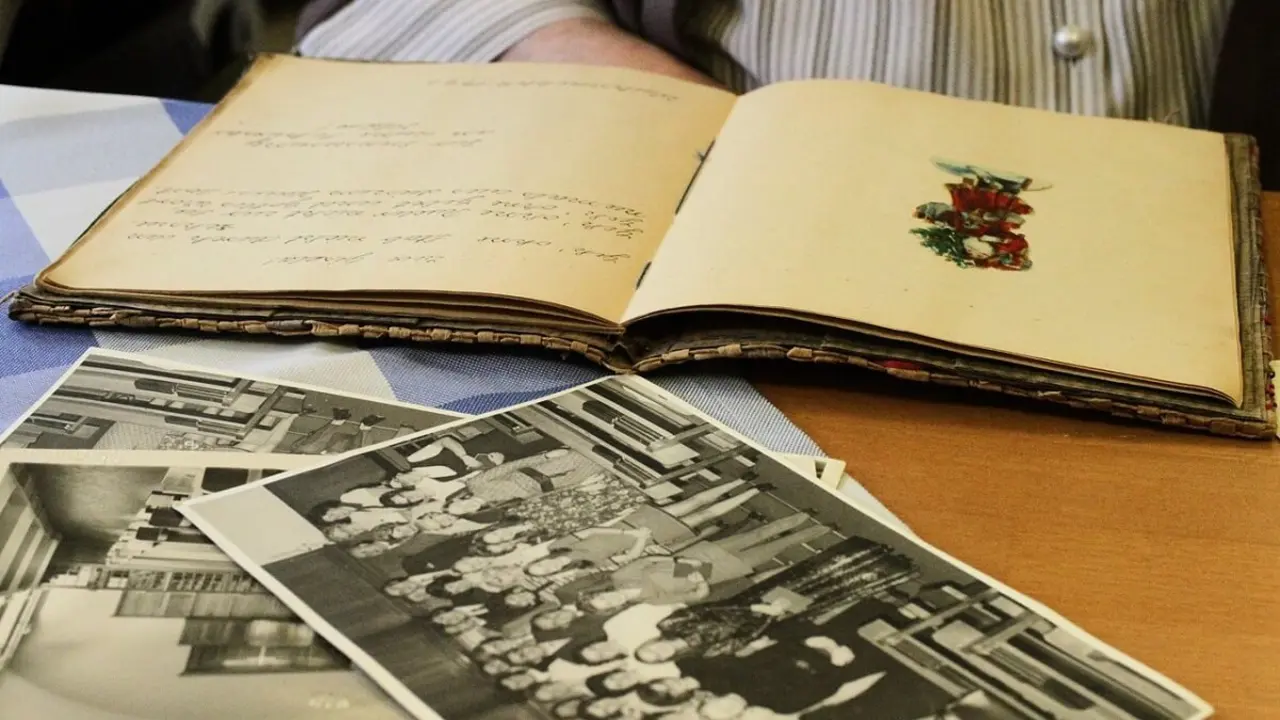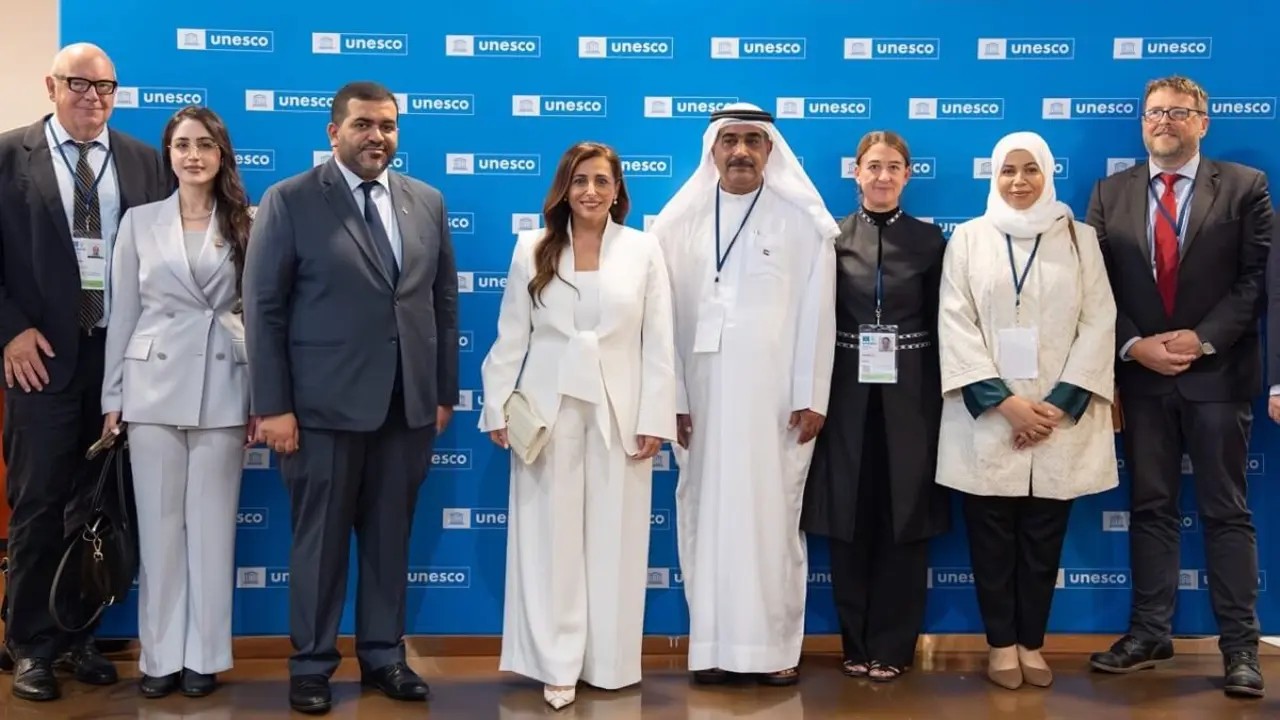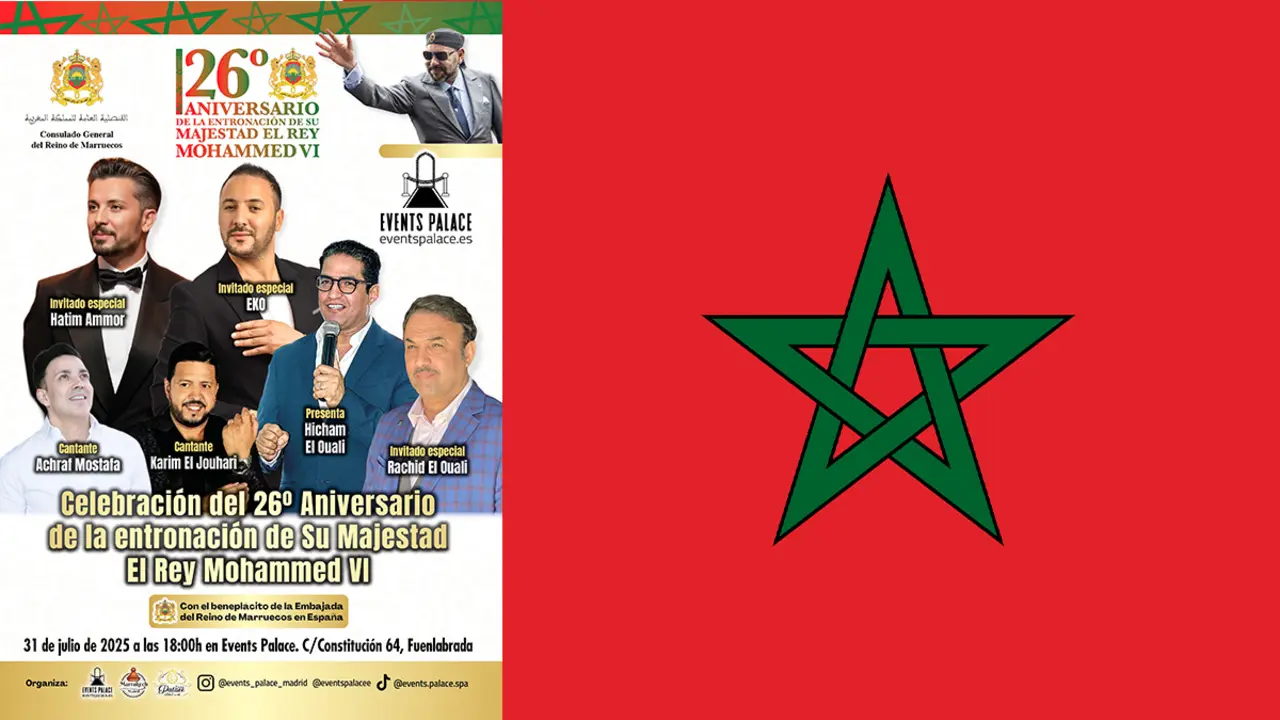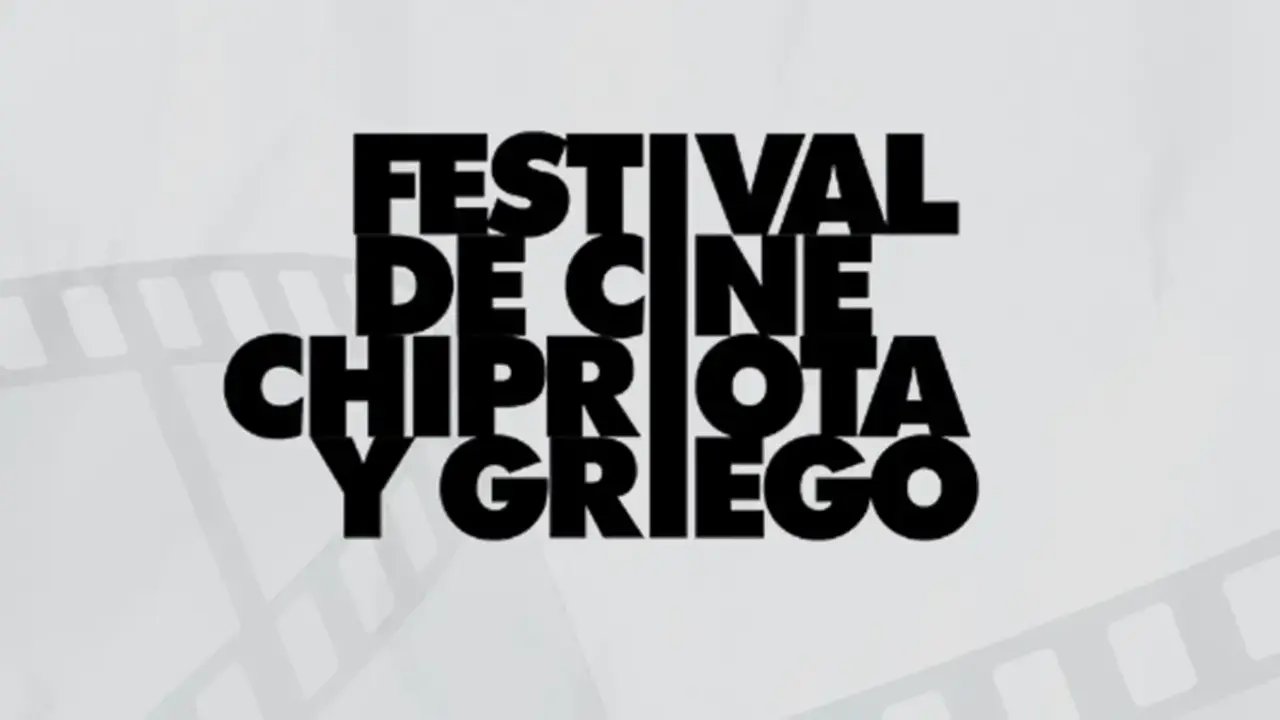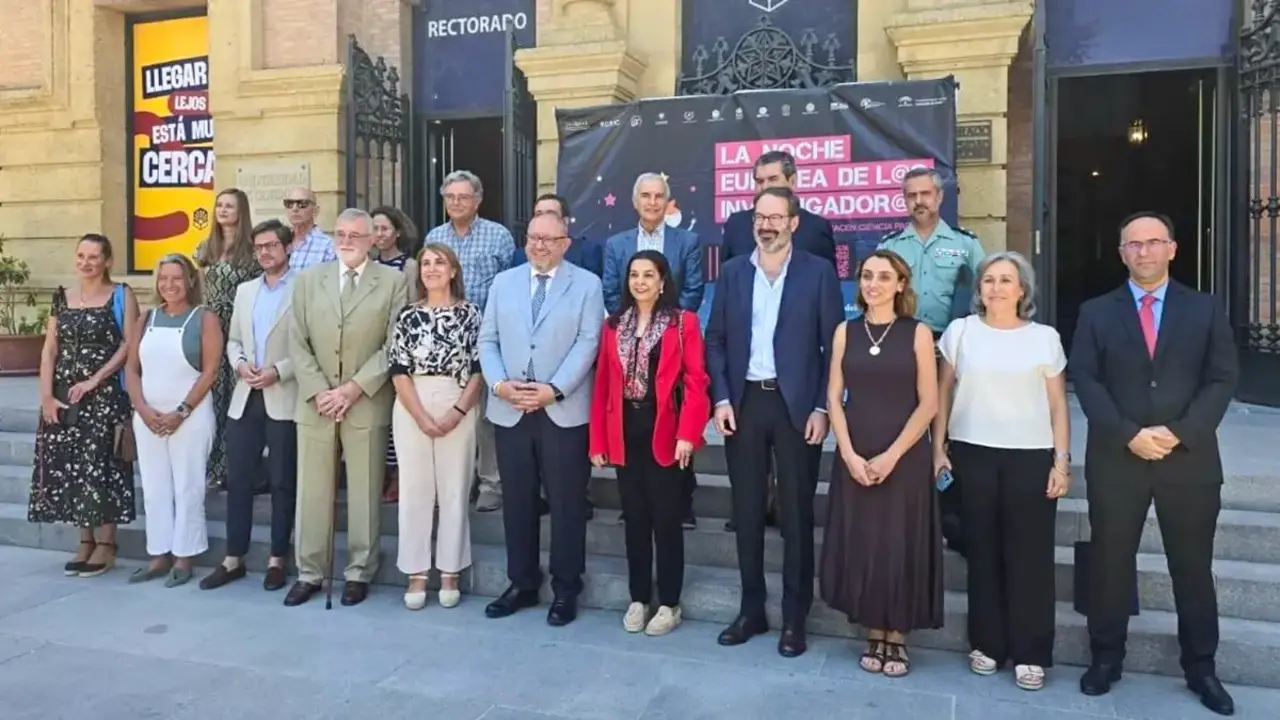Ayoub El Hilali hopes that people will enjoy themselves and watch "Ocho apellidos marroquís" with humour

Actor Ayoub El Hilali's agenda is non-stop just a few days before the premiere of his latest film, but he has found time to tell Atalayar about his experience in "Ocho apellidos marroquís", to look back and remember his beginnings, and to talk about the future. He arrives at the appointment, near Puerta de Alcalá, on a motorbike, from where we walk to "Il tavolo verde", a special corner where we do the interview over a delicious coffee.
He hopes that people will enjoy "Ocho apellidos marroquís" as much as he has enjoyed acting in it, and that they will watch it with humour. He also told us about his new projects: the series for TVE, "Detective Touré", which will premiere in March, and the production company he has set up with Cayetana Guillén Cuervo and Hamza Zaidi. He smiles, because he is reaping the rewards of effort and perseverance, but he does not forget where he comes from and what things cost. In Arabic, he says, the saying goes, "better a little and continuous than a lot and a little". The role of the policeman he played in "El Príncipe" was key in his career, a career that began with his mother, "who is everything", on stage. Perhaps that is why he does not hesitate to say that there is nothing comparable to what he feels when the curtain rises in a theatre. He, who can boast of having worked with the director of "Telma and Louise", Ridley Scott. El Hilali also opened his heart a little and showed us his social outlook.
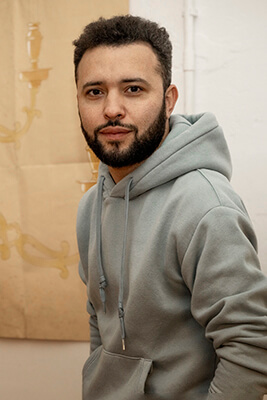
In a few days "Ocho apellidos marroquís" will be released. How was the filming and your role?
My character is Abdel, who is the cousin of the main character, Hamida, who is María Ramos. And I share the cast of cousins with Hamza Zaidi, who is my brother, and Abdelatif Hwidar, who plays our father. Other actors include Elena Irureta, Julián López, Michelle Jenner... The filming has been spectacular, a lot of fun. We have been in wonderful places, such as San Vicente de la Barquera, in Santander; we have also filmed in Madrid and Essaouira. The whole shoot has been a very enriching experience.
Because it all starts when Carmen (Elena Irureta), in order to fulfil her husband's last wish, travels from Cantabria to Morocco...
Exactly. The filming is that journey from Cantabria to Morocco. It's been very cool to share with colleagues, because it's not the same as when you travel with your family. This trip has been very positive on an artistic and human level, special, because I think we have all discovered very interesting things, both one and the other. We spent three months filming. A month in Morocco, a month and a half in Santander, and 15 days in Madrid, filming smaller things.
What are your expectations for this film? Do you think it will open new doors for you?
The truth is that it's a big responsibility, because it's a trilogy, a saga that goes back a long way. What I hope for the film is that people like it, that they enjoy it, that they laugh, that they understand it as if they were reading a comic book, that they think it's a caricature, that they don't take things to heart. The trailer has just come out and already some people have started to criticise, to say that there is racism... I would ask them to wait to see it, not to judge without knowing, and that if there is criticism it should be constructive. I think they're going to be very surprised, because it's very funny and, even those who criticise it, I know they're going to love it.
Criticism through social networks? Is everything valid in this digital world?
We live in a more superficial world. Now, with social networks, everything is easier. People criticise without seeing, without knowing and without having the information or only part of it. We are creating an increasingly polarised society on a social or socio-political level. And I think it is because of social networks, because of algorithms. But I also think that social networks have to be taken as tools and put to good use so that they can be positive. With the Internet, social networks and now artificial intelligence, the important thing is not to see them as enemies, but as allies, and to be clear that we are the ones who can use them for learning in education, art, music, videos, montages.... In the case of film, social networks must also be an ally. And I hope that what predominates and prevails is humour. Humour is fundamental to understanding this film.
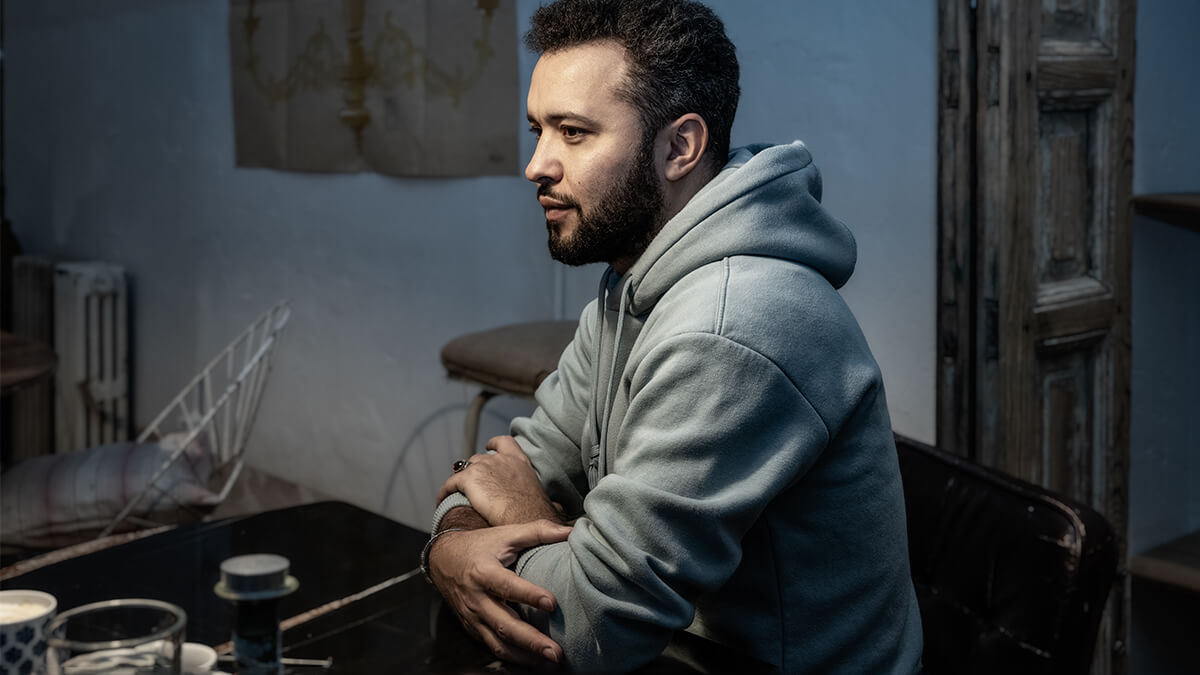
You talk about humour, but you have to be careful... Do you understand life without humour?
No, not really. I laugh at myself. I think it's important. I could tell you that humour has no limits, but there is also respect. I consider myself a very respectful person. That's why, sometimes, it depends. I think respect and humour have to be on the same level. Black humour, acid humour, satire, sarcasm... all have their place, but it depends on the sensitivity, the situation, the context. No harm should be done. In this film there is a lot of humour, both the conservative Spanish family and the Moroccan family are caricatured, but without going into deep issues that could hurt, such as religious sentiment.
You talked about racism. You are Spanish and Moroccan. Have you suffered from it? Have you felt marginalised?
Marginalisation? Well, sometimes, yes, although maybe it's part of... of the journey. It's what makes me the person I am today, what I want, what I think, what I stand for.
Looking back, do you remember when you decided you wanted to be an actor? Is there a family background?
I was 15 years old. The beginning was a bit of a coincidence, but it's true that in my house there is a background. I went to a casting in high school to appear in a film, "Fuerte Apache", by Mateu Adrover, many years ago. And the typical story where you show up and you take your brother and, in the end, it's him who ends up being the main character. That's my story.
Your brother wanted to be an actor?
Yes. Well, it was the first time we were in something like that. He was 10 years old, he was very young and they chose him. That's when I got the bug. I could tell you a lot of things in parallel, but that's where it all started, and we decided to train. My brother ended up becoming an urban dancer, a breakdancer. And I studied acting at the Forn de Teatre Pa'tothom in Barcelona, which is a school of social theatre, theatre of the oppressed. I finished my degree and presented my work, a play with my mother, because that's where it all came from: "Amina busca feina". I won a prize in Catalonia (Eureka Project) and we got a grant to do a tour. Jordi Forcadas directed it. And, to be honest, it was a cathartic experience. My mother was the protagonist.
Your expression has changed when you talk about your mother...
My mother is everything in my life. Remembering that moment is precious. I was just starting out. I was 17 years old. It was an experience in which we learned a lot. There is a report, a "Gran angular" on La 2. I also remember it with nostalgia. We did a tour of prisons. My brother and I were minors. Imagine the impact, we were telling a story that touched everyone inside. I remember it with nostalgia and with a lot of love and affection. And then, as a result of this, the Sociology and Anthropology students at the University of Barcelona, those on the Master's course, did a paper on Amina and on what social work was all about. A book was also published, "Praxis de Teatro del Oprimido", by Jordi Forcadas. It sold out in three days. We didn't print any more editions, the aim was not to make money, but to communicate a reality to people.
What was the message of that play?
We were a vulnerable family, we lived in an environment of social oppression. The book talks about how to put into practice a play of the oppressed in an environment of people who are living the same as the protagonist. The play is about a lady in Spain, with a precarious job, who cleans stairs, who signs contracts between cars, who has a bunch of keys to legal and illegal works. Then, the dilemma arises as to whether she has to go to social services, to unemployment, to take her son to school... The end of the play was open. The audience could come up and propose their ending or help Amina to find a good ending, for example, with a lawyer who accompanies her to see her boss. There was improvisation. The play with my mother in prisons is one of the best experiences of my life. And I'm telling you now that I've met Ridley Scott and I've worked with the biggest names in Spain.
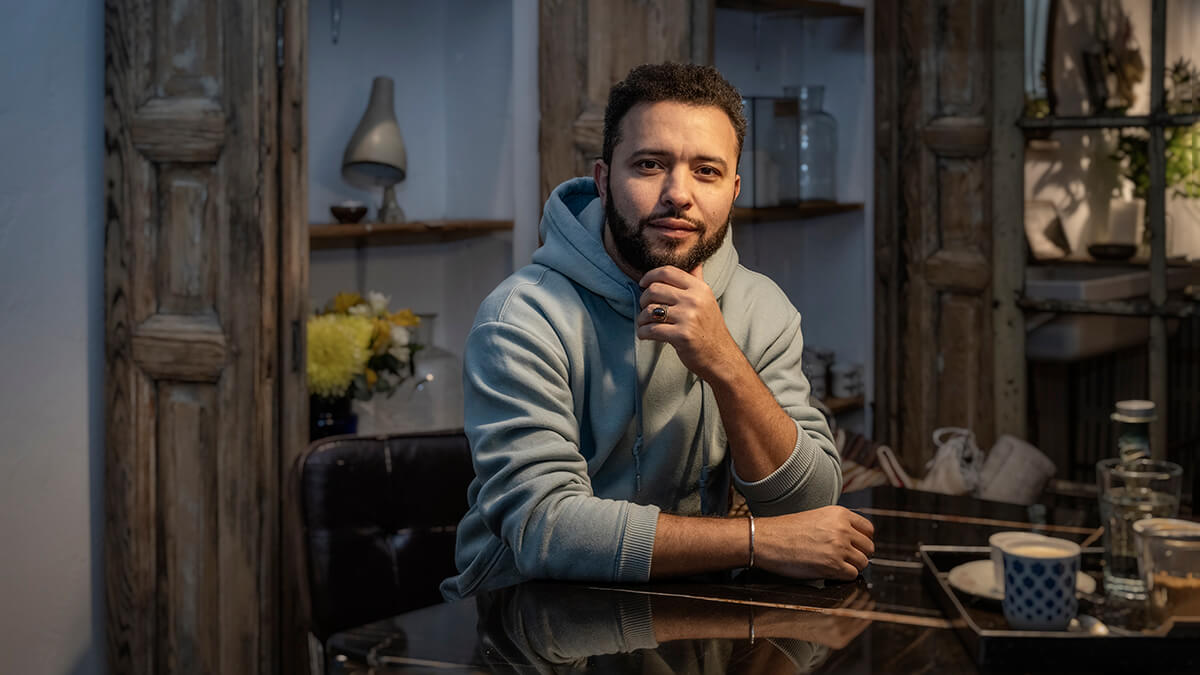
Then came "Otra ciudad", "Pelotas", "La Pecera de Eva" and the success with "Príncipe" in 2014. Did you think you were going to rise so fast?
My first film was "Fuerte Apache". Then when I was 16 or 17 years old I presented myself in Madrid. Imagine, Corredera Baja de San Pablo, Plaza de la Luna, Teatro Lara. I arrived as a minor to do theatre. The play was called "El enemigo de la clase", by Nigel Williams, directed by Marta Angelat. That's where I started my Madrid career. I had never been to Madrid and suddenly I was rehearsing with Javier Ambrosí, Bernadette Fernández, Eloi Yebra, Críspulo Cabezas. For me, it was a gift and an experience, I was the youngest of the young. And from there I jumped to the series. I remember perfectly the day I went to the casting of "El Príncipe". I was in Barcelona, my agent told me that they were looking for a young boy for one of the main characters, I took a bus and came. I was struck by the fact that they wanted a policeman of Moroccan origin. Too bad he ended up being a terrorist.
Staying as an actor is not easy. With your experience, what would you say to those young people who dream of being an actor?
When Juan Diego, may he rest in peace, told me that a good actor is one who knows how to wait, I thought he was referring to waiting to be on a film set and having patience. But no, he was referring to the one who knows how to wait in life, and make the most of it. The one who knows how to wait when to speak, who knows how to wait and listen, who knows how to wait for his moment. That's what I would say to them, that the good actor is the one who knows how to wait. Those who think they have already arrived, because they have done something important or are in the latest Netflix series, don't know that the journey will come to an end, when we see the legacy they have left behind. How many people have we seen at the top and don't even remember it? In Arabic we say "better little and continuous than too much and too little".
On a scale, what weighs more: luck, effort, perseverance...?
I think constancy. You can't just sit at home either. People tell me that they have studied acting and they don't get called. Even having an agent is difficult, they are busy. Everything goes very fast, with networks, followers, repercussion... Before, repercussion had a different flavour, a different charisma. Today it doesn't have that sweetness. That's why you have to be very constant. What is luck? For me, it's knowing what to do and being in the right place with the right person. And that has to do with moving, looking for that place and that person and knowing how to say the right thing at the right time. Luck is never going to knock on your door. If you move, if you go looking for your piece of bread... in the end you find it, it's not luck, or at least not only. Rosa Estévez chose me for "El Príncipe", but I left my house, I took a bus trip to Madrid, I gambled without knowing if I would be one of the 500 who were there, I gave everything in the casting, I prepared the character... Constancy, and, as we say, you have to be active.
"No hay quien os entienda" is a play for micro-theatre that you did. What is it that Ayoub doesn't understand about this society?
(Silence). The bad thing is that what I don't understand, I do understand. Before, I didn't; now, I do. And it's the injustice of the world, this society is very unjust. It's governed by money, by power. I work in "show business", what drives it, well, the economic world, globalisation, power... For example, I feel better and calmer giving an interview to Atalayar than doing a super mega-interview in a super media, because I don't know if I'm going to have more limitations in terms of my freedoms. I always watch over my freedom, to talk about the things that interest me. With this question, you risk me talking to you about a thousand things that you may or may not like. But you ask and I answer freely. Injustice, that would be my answer.
And is there a solution to this injustice in this unjust world?
I would like to think so, but it requires something very complicated: that we are all united. The day we are united we will be able to put an end to injustice. Unity is strength. If we are divided, we will be the losers in the face of those who want to divide us.
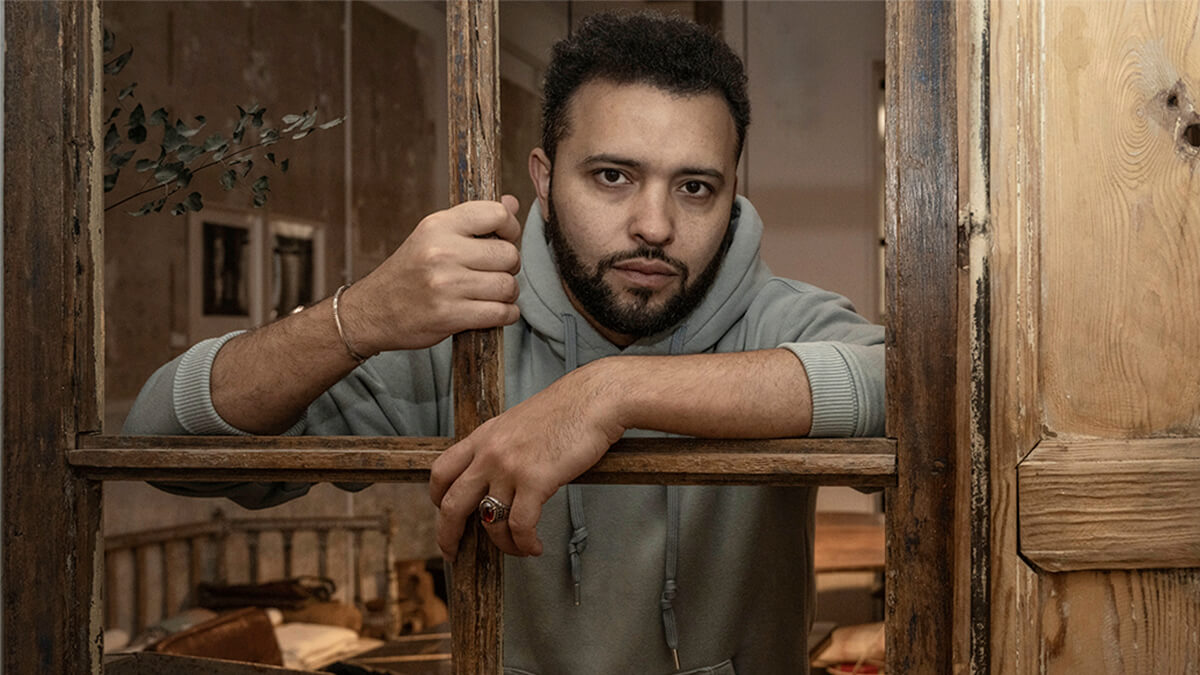
Let's go back to acting: do you prefer to listen to the action and start filming or do you prefer the curtain to open and be on stage?
Last year I was made a member of the Academy of Performing Arts, presided over by Cayetana Guillén Cuervo, whom I love and admire as a woman, a worker, a mother, a companion... With her I did "Puertas Abiertas". We acted face to face. A beautiful play that talks about injustice in the world, about embracing difference. It was a bit of a mirror play that you put in front of the audience. It was based on the Bataclan nights in Paris. On Twitter there was a hashtag, which was #portesouvertes, so that the people who stayed in the streets after the attack, because the metro was closed, there were no taxis, nothing, could go up to their houses and have a coffee. My character was a boy who went to Julie's (Cayetana) house. It was a wonderful play. I wouldn't change that for anything. We were selected to do the Broadway Off, that is, the alternative Broadway circuit. What I feel when I get on stage, before I get on stage, when I look at the people there... that's priceless. And I'll tell you something, I get paid more for making films and series, but the experience of going up to a Teatro Arriaga, a Teatro Español, a Campoamor... you can't describe it. It is impressive.
If tomorrow they told you what you'd like to do, what role and with whom. You choose...
Can I choose the director too? (Of course). Let's dream. With a woman director, Blanca Portillo, I've worked with her in films, but I'd like to do it on stage and have her direct me. Male director, Alfredo Sanzol. They're going to kill me, there are so many good ones. And colleagues, Cayetana, José Luis García Pérez, Carmen Machi... I would love to do theatre with Vicky Luengo, and also with Andrés Lima, to be directed by him. There are so many people I admire... And the text could be "Todos pájaros", by Wajdi Mouawad, a Canadian of Lebanese origin. A play by him has already been performed in Spain, "Incendios", which was a success 10 or 15 years ago, and I would have loved to cast it, but I wasn't that active. The play worked very well with Spanish actors, whom I admire, but it should have been done by Arab actors. The day I meet Mouawad I'll ask him for the rights and we'll do it.
We return to "Ocho apellidos marroquís". After the premiere, is it time for a rest or new projects?
Both. Hamsa Zaidi, Cayetana Guillén Cuervo and myself have set up a production company called Algoritmo Producciones. We are very involved in the world of artificial intelligence, the responsibilities we have as users of social networks, to what extent we can be victims or executioners. On the 15th we start shooting chapter 0 of a series on these issues. We are producers and actors, co-producing with The Other Side Films of the Prada brothers, whom we admire. Also, March sees the premiere of the series I made for TVE: "Detective Touré", starring Malcolm Sitté and directed by Esteban Crespo and Violeta Salama, based on the novels by Jon Arretxe. It is about a black boy who has been in Spain for some time, but as our administration unfortunately has some racist filters, which we have been denouncing for some time now from the anti-racist platforms, it still has unresolved issues.
This series reflects those things from a humorous point of view, with a smile, without victimhood, and I am proud of it. This guy is a private detective, but not a legal one, and in the San Francisco neighbourhood of Bilbao, he is asked to uncover a series of cases... There is a beautiful image of the city, with an important socio-cultural movement. We did a bit of research to get into the characters and it was very interesting. I come from an anti-racist, feminist, transversal movement in Barcelona and Madrid and I really liked discovering that part of Bilbao. The series talks about these issues, about property speculation, tourist flats... I'm thrilled.
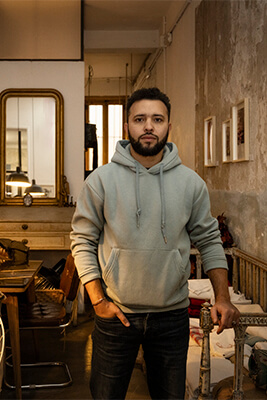
What character have you not played and would you like to play?
I would like to... That's a good question. There are so many. A merchant of Venice or a classic in theatre, the thing is that nowadays there is still a lot of reticence in terms of casting in terms of the diversity of ethnic-racial representation on the stage, although we are taking quantitative and qualitative steps, for example, in this series we were talking about, we play characters who don't speak with an accent. In this sense, I am grateful to Tornasol, which is the production company with Planeta, and to the director Esteban Crespo, who has always supported this proposal.
We end without a question. What answer would you like to end this interview?
(Silence) Sincerely, and from my heart, I wish for peace in the world.


